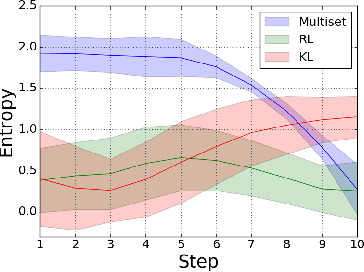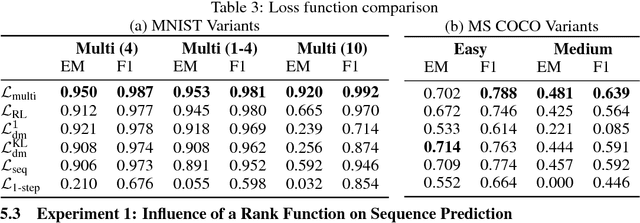Zixin Yao
FutureX-Pro: Extending Future Prediction to High-Value Vertical Domains
Jan 18, 2026Abstract:Building upon FutureX, which established a live benchmark for general-purpose future prediction, this report introduces FutureX-Pro, including FutureX-Finance, FutureX-Retail, FutureX-PublicHealth, FutureX-NaturalDisaster, and FutureX-Search. These together form a specialized framework extending agentic future prediction to high-value vertical domains. While generalist agents demonstrate proficiency in open-domain search, their reliability in capital-intensive and safety-critical sectors remains under-explored. FutureX-Pro targets four economically and socially pivotal verticals: Finance, Retail, Public Health, and Natural Disaster. We benchmark agentic Large Language Models (LLMs) on entry-level yet foundational prediction tasks -- ranging from forecasting market indicators and supply chain demands to tracking epidemic trends and natural disasters. By adapting the contamination-free, live-evaluation pipeline of FutureX, we assess whether current State-of-the-Art (SOTA) agentic LLMs possess the domain grounding necessary for industrial deployment. Our findings reveal the performance gap between generalist reasoning and the precision required for high-value vertical applications.
AgentDistill: Training-Free Agent Distillation with Generalizable MCP Boxes
Jun 17, 2025



Abstract:While knowledge distillation has become a mature field for compressing large language models (LLMs) into smaller ones by aligning their outputs or internal representations, the distillation of LLM-based agents, which involve planning, memory, and tool use, remains relatively underexplored. Existing agent distillation methods typically replay full teacher trajectories or imitate step-by-step teacher tool usage, but they often struggle to train student agents to dynamically plan and act in novel environments. We propose AgentDistill, a novel, training-free agent distillation framework that enables efficient and scalable knowledge transfer via direct reuse of Model-Context-Protocols (MCPs), which are structured and reusable task-solving modules autonomously generated by teacher agents. The reuse of these distilled MCPs enables student agents to generalize their capabilities across domains and solve new problems with minimal supervision or human intervention. Experiments on biomedical and mathematical benchmarks demonstrate that our distilled student agents, built on small language models, can achieve performance comparable to advanced systems using large LLMs such as OctoTools (GPT-4o), highlighting the effectiveness of our framework in building scalable and cost-efficient intelligent agents.
Alita: Generalist Agent Enabling Scalable Agentic Reasoning with Minimal Predefinition and Maximal Self-Evolution
May 26, 2025



Abstract:Recent advances in large language models (LLMs) have enabled agents to autonomously perform complex, open-ended tasks. However, many existing frameworks depend heavily on manually predefined tools and workflows, which hinder their adaptability, scalability, and generalization across domains. In this work, we introduce Alita--a generalist agent designed with the principle of "Simplicity is the ultimate sophistication," enabling scalable agentic reasoning through minimal predefinition and maximal self-evolution. For minimal predefinition, Alita is equipped with only one component for direct problem-solving, making it much simpler and neater than previous approaches that relied heavily on hand-crafted, elaborate tools and workflows. This clean design enhances its potential to generalize to challenging questions, without being limited by tools. For Maximal self-evolution, we enable the creativity of Alita by providing a suite of general-purpose components to autonomously construct, refine, and reuse external capabilities by generating task-related model context protocols (MCPs) from open source, which contributes to scalable agentic reasoning. Notably, Alita achieves 75.15% pass@1 and 87.27% pass@3 accuracy, which is top-ranking among general-purpose agents, on the GAIA benchmark validation dataset, 74.00% and 52.00% pass@1, respectively, on Mathvista and PathVQA, outperforming many agent systems with far greater complexity. More details will be updated at $\href{https://github.com/CharlesQ9/Alita}{https://github.com/CharlesQ9/Alita}$.
On Path to Multimodal Historical Reasoning: HistBench and HistAgent
May 26, 2025Abstract:Recent advances in large language models (LLMs) have led to remarkable progress across domains, yet their capabilities in the humanities, particularly history, remain underexplored. Historical reasoning poses unique challenges for AI, involving multimodal source interpretation, temporal inference, and cross-linguistic analysis. While general-purpose agents perform well on many existing benchmarks, they lack the domain-specific expertise required to engage with historical materials and questions. To address this gap, we introduce HistBench, a new benchmark of 414 high-quality questions designed to evaluate AI's capacity for historical reasoning and authored by more than 40 expert contributors. The tasks span a wide range of historical problems-from factual retrieval based on primary sources to interpretive analysis of manuscripts and images, to interdisciplinary challenges involving archaeology, linguistics, or cultural history. Furthermore, the benchmark dataset spans 29 ancient and modern languages and covers a wide range of historical periods and world regions. Finding the poor performance of LLMs and other agents on HistBench, we further present HistAgent, a history-specific agent equipped with carefully designed tools for OCR, translation, archival search, and image understanding in History. On HistBench, HistAgent based on GPT-4o achieves an accuracy of 27.54% pass@1 and 36.47% pass@2, significantly outperforming LLMs with online search and generalist agents, including GPT-4o (18.60%), DeepSeek-R1(14.49%) and Open Deep Research-smolagents(20.29% pass@1 and 25.12% pass@2). These results highlight the limitations of existing LLMs and generalist agents and demonstrate the advantages of HistAgent for historical reasoning.
EmoAgent: Assessing and Safeguarding Human-AI Interaction for Mental Health Safety
Apr 13, 2025Abstract:The rise of LLM-driven AI characters raises safety concerns, particularly for vulnerable human users with psychological disorders. To address these risks, we propose EmoAgent, a multi-agent AI framework designed to evaluate and mitigate mental health hazards in human-AI interactions. EmoAgent comprises two components: EmoEval simulates virtual users, including those portraying mentally vulnerable individuals, to assess mental health changes before and after interactions with AI characters. It uses clinically proven psychological and psychiatric assessment tools (PHQ-9, PDI, PANSS) to evaluate mental risks induced by LLM. EmoGuard serves as an intermediary, monitoring users' mental status, predicting potential harm, and providing corrective feedback to mitigate risks. Experiments conducted in popular character-based chatbots show that emotionally engaging dialogues can lead to psychological deterioration in vulnerable users, with mental state deterioration in more than 34.4% of the simulations. EmoGuard significantly reduces these deterioration rates, underscoring its role in ensuring safer AI-human interactions. Our code is available at: https://github.com/1akaman/EmoAgent
Loss Functions for Multiset Prediction
Oct 25, 2018


Abstract:We study the problem of multiset prediction. The goal of multiset prediction is to train a predictor that maps an input to a multiset consisting of multiple items. Unlike existing problems in supervised learning, such as classification, ranking and sequence generation, there is no known order among items in a target multiset, and each item in the multiset may appear more than once, making this problem extremely challenging. In this paper, we propose a novel multiset loss function by viewing this problem from the perspective of sequential decision making. The proposed multiset loss function is empirically evaluated on two families of datasets, one synthetic and the other real, with varying levels of difficulty, against various baseline loss functions including reinforcement learning, sequence, and aggregated distribution matching loss functions. The experiments reveal the effectiveness of the proposed loss function over the others.
 Add to Chrome
Add to Chrome Add to Firefox
Add to Firefox Add to Edge
Add to Edge